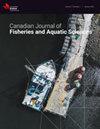连接真实世界的渔业数据集,绘制渔场与依赖社区的收入图
IF 2.2
2区 农林科学
Q2 FISHERIES
Canadian Journal of Fisheries and Aquatic Sciences
Pub Date : 2023-09-14
DOI:10.1139/cjfas-2023-0123
引用次数: 1
摘要
绘制海洋的经济价值对于了解海洋生态系统如何促进人类福祉和支持渔业管理至关重要。我们提出了一个框架,通过将船舶监测系统(VMS)信息与日志和观察员数据联系起来,分析渔业数据并绘制渔业收入图。我们提供了一个详细的分步方法,并描述了可用于完成每一步的不同方法,并特别注意处理现实世界的混乱数据。该框架包括6个处理步骤:(1)识别目标渔业和细分VMS数据;(2)提取相关变量;(3)链接观察者和VMS数据;(4)识别捕捞活动;(5)链接VMS和日志数据;(6)提取衍生变量并将收入映射回提取资源的社区。建立这一框架将开启广泛的应用,包括海洋空间规划、快速反应分析、高分辨率种群评估和空间明确的社会经济分析。我们在墨西哥湾的珊瑚礁渔业中展示了该框架,目前正在进行水产养殖的空间规划。本文章由计算机程序翻译,如有差异,请以英文原文为准。
Linking real world fisheries datasets for mapping of revenue from fishing grounds to dependent communities
Mapping the economic value of the ocean is pivotal to understand how marine ecosystems contribute to human well-being and to support fisheries management. We present a framework to analyse fisheries data and map fishing revenues by linking Vessel Monitoring System (VMS) information to logbooks and observer data. We provide a detailed step-by-step methodology and describe different approaches available to fulfill each step, with special notes for the processing of real-world messy data. The framework consists of six processing steps: (1) identifying the target fishery and subsetting VMS data, (2) extracting relevant variables, (3) linking observer and VMS data, (4) identifying fishing activity, (5) linking VMS and logbook data, and (6) extracting derived variables and mapping revenue back to the communities that extracted the resources. Building this framework opens a broad range of applications including marine spatial planning, rapid response analyses, high-resolution stock assessments, and spatially explicit-socioeconomic analyses. We demonstrate the framework in the reef fishery of the Gulf of Mexico, where spatial planning for aquaculture is currently underway.
求助全文
通过发布文献求助,成功后即可免费获取论文全文。
去求助
来源期刊

Canadian Journal of Fisheries and Aquatic Sciences
农林科学-海洋与淡水生物学
CiteScore
4.60
自引率
12.50%
发文量
148
审稿时长
6-16 weeks
期刊介绍:
The Canadian Journal of Fisheries and Aquatic Sciences is the primary publishing vehicle for the multidisciplinary field of aquatic sciences. It publishes perspectives (syntheses, critiques, and re-evaluations), discussions (comments and replies), articles, and rapid communications, relating to current research on -omics, cells, organisms, populations, ecosystems, or processes that affect aquatic systems. The journal seeks to amplify, modify, question, or redirect accumulated knowledge in the field of fisheries and aquatic science.
 求助内容:
求助内容: 应助结果提醒方式:
应助结果提醒方式:


